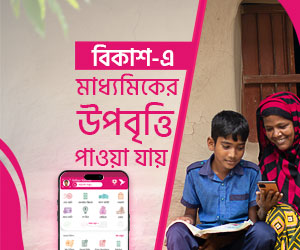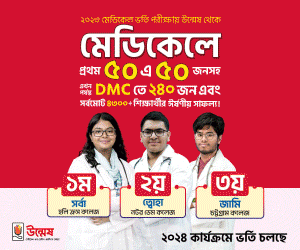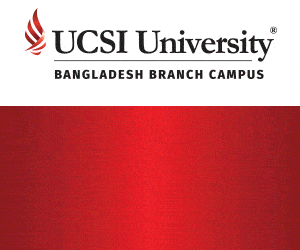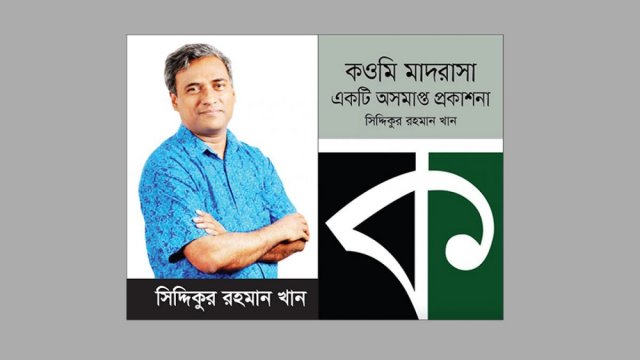
“Yaba comes from Myanmar and is hidden in imports of dry fish or stashed inside vehicles.” Image via Author
The rehab rooms were bare and cell-like and beneath each sprung mattress was a pink bedpan. People don’t enter Bangladeshi rehabs expecting comfort.
Past barred windows with no glass, the hallway led to a large room where a dozen or so clients were assembled for a group therapy session: an encounter with their demons and those brought forth by their colleagues. It was close to the Muslim holiday of Eid and semi-deflated pink and yellow balloons were stuck to the ceiling.
Kashem* looked relieved to get out of the therapy session and head to the upstairs office for an interview. He sat down in front of a cabinet full of “best NGO” awards and photographs of the rehab’s director meeting journalists and funders.
He folded his arms tightly and drummed his foot on the floor. He had been at the treatment center, part of the Non-Governmental Organization for National Goals to be Obtained and Retained (NONGOR), in Cox’s Bazar, Bangladesh, for three weeks trying to overcome his craving for methamphetamine pills known as “yaba” – a Thai word meaning “crazy drug.”
We were sitting some 50 miles from the Naf River which separates Bangladesh from Myanmar (formerly known as Burma). At the time of writing, it is a humanitarian disaster where hundreds of thousands of Rohingya people are fleeing ethnic cleansing in Myanmar. The rest of the time it is a busy meth smuggling route.
“Yaba comes from Myanmar and is hidden in imports of dry fish or stashed inside vehicles,” Kashem said. “Local taxi drivers distribute it; you just call them and they drop off your order.”
“Most people here prefer yaba over other drugs,” he said. “I used heroin before but that made me weak. When I take yaba my blood feels fired up and I don’t care about anything. I feel like a strong person.”
Bangladesh’s Drug du Jour
“Bangladesh is not so much a nation as a condition of distress,” wrote journalist William Langewiesche in 2000. Back then over a third of people in the country lived on less than $2 per day.

Image via Author
The government has managed to slash its poverty rate since then but this south Asian nation remains a sitting duck for climate change, with floods worsening every year, and is the most overpopulated country on Earth. Imagine cramming half the population of the U.S. into Iowa while dismantling most of the infrastructure.
Recently, there has been a sharp rise in yaba use and seizures of the drug have skyrocketed. Bangladesh Border Guards confiscated 81,000 tablets in 2010, according to the Department of Narcotics Control. In 2016, they netted 29.5 million pills.
Authorities seized 2.8 million of these vanilla-scented colourful tablets in a single day in January 2016.
An Exploitable Market
Yaba pills are a cheaper, adulterated form of methamphetamine, according to a 2015 reportfrom the United Nations Office of Drugs and Crime (UNODC). They typically weigh about 90 mg and “have a purity of 5-20 per cent, with the remainder often consisting largely of caffeine.”
Most of the yaba in Southeast Asia is manufactured in Myanmar. When Myanmar’s drug gangs started switching their operations from opium production to cheaper, nastier amphetamine stimulants in the 1990s, they continued to use traditional smuggling routes through China and Thailand, the report said.
“Given that interdiction efforts have been strengthened along the joint border between Myanmar to China and Thailand, there are indications that drug traffickers have [now] shifted routes to avoid detection,” the report said. While the data it cites in this case refers to an increase in smuggling through Laos, the tides of yaba washing up in Bangladesh indicate that this too has become an important smuggling route.
Jeremy Douglas, regional representative for the UNODC, said getting accurate information about how the drug trade works in this populous, poor and complex region is extremely difficult. Increasingly at risk from funding cuts, the UNODC is one of the few organizations doing analysis on the problem.
“Bangladesh has characteristics that make it attractive as a market for organized crime to develop,” said Jeremy Douglas, regional representative for the UNODC. “We know that some large seizures have been made both in the country and neighbouring Rakhine state in Myanmar. But frankly, information is limited and spotty.”
‘The Promise of Our Youth’
In Bangladesh, where roughly one-third of the population is aged between 15 and 30, according to data portal IndexMundi, yaba has become fashionable. “At present, Yaba is the drug of top popularity among the young generation” said a 2013 report from the government’s Department of Narcotic Control – the most recent one available.
“During the last decade, youth were the major drug abusing group,” the report said. “Girls of rich families and fashioned in western style are more visible in [the] practice of drugs … Clubs very often arrange rave parties … [where] it is alleged that there is plenty of abuse of Yaba, ketamine and other date-raping drugs.”
Yaba first entered Bangladesh in the early 2000s where it was adopted by rich kids, according to the report. Now the young people of this generation, who have grown up with a small disposable income and access to urban parties, are after the drug that makes you dance all night.
Yaba use is “expanding rapidly among adolescent and street children,” the report said. “School and college going girls are being inclined to drugs under the influences of their boyfriends.”
Bilal*, a businessman from the capital city Dhaka, said he was addicted to yaba in his early twenties. Coming from a wealthy background, he was part of the first wave of yaba users in the country.
“I used to arrive at the office severely late,” he said. “Every day after work, I used to go to my friend’s house and order yaba. We’d smoke it and play FIFA on the PlayStation – about 30 games in a row.”
The older generation is shocked at the sudden prevalence of drugs. “Something in … the room is burning, and it’s not just the yaba sliding down the aluminium foil. It’s a generation’s best years, the promise of our youth,” said Hossien Muhammed Zaki, research fellow at the Social Science Research Council in Dhaka, writing in the October 2015 issue of the Police Staff Collage Journal.
“It is reported that 53.27% of young people in the country [are] addicted to drugs,” Zaki added.
Concern became panic in 2013 when 17-year-old Oishee Rahman, who had been using yaba, drugged and stabbed her parents to death after they punished her for staying out late. She narrowly avoided the death penalty.
Kashem, who is 37, has seen the local drug culture change since he was young. “When I was young only about 10 percent of people were using drugs but now half of all young people are using yaba. It’s happened as the economic conditions have improved here.”
“My eldest son passed higher secondary education and now I am sending him to work in Saudi Arabia because I am worried that yaba will destroy him like other young people,” he said.
Trying Our ‘Level Best’
Kamal Shamsuddin, union chairman for the ruling Awami League party in Cox’s Bazar, sat on a rickety bench in his home village. It was early evening and a strange red light fell on the tea shacks where people had come to socialize.
The tea came in small glasses – unpalatably strong but for large scoops of sugar. His heavy eyebrows collided when asked about the yaba crisis. “It’s a headache,” he said.
“We are doing our best to help those who get addicted to yaba,” he said. “We are a democratic country and try to respect people’s rights, even the dealers.”
However, a more senior member of the Awami League in Cox’s Bazar, Najnin Sarwar Kaberi, said she would support the death penalty for dealers. “I think yaba smugglers should get capital punishment,” she said. “Poor people don’t take yaba; it’s mostly bored rich kids and they should be supported to give up.”
Both officials agreed that it would be hard to combat the epidemic without tackling the source in Myanmar. “If Myanmar took the initiative they could solve this crisis within the year,” Kaberi said, adding that the U.S. should put pressure on their neighbour to clean up drug production.

Image via Author
Few Resources for People with Addiction
While politicians argued, the smoke from an estimated two million yaba pills was being inhaled through rolled up bills throughout the nation. Getting treatment is tricky for those who get addicted: the government only lists five public treatment centres while there are 68 private institutions according to a 2015 report by the World Health Organization.
Bilal managed to stop without treatment and has not touched yaba in eight years. “I still don’t understand how I managed to stop without rehab or counseling,” he said. “I never took it again, I thought about it and the rituals of scoring but I never felt the inspiration to do it … I guess I was ready to stop.”
Kashem is hoping to join Bilal on the shores of sobriety one day. But before that he still has nine more weeks of rehab. “I have group therapy every morning and evening,” he said. “And we say the serenity prayer after Narcotics Anonymous meetings.”
Kashem returned to the hot, concrete rooms downstairs after the interview. His brown polo shirt showed the NONGOR logo emblazoned on the back.
It was time for the evening meal and two dozen clients, similarly dressed in brown polo shirts, sat cross-legged down the tiled corridor with sun-yellow trays of turmeric rice, egg and spicy chicken.
As they ate in silence a member of staff closed and bolted the gate. “We lock the door because they sometimes try to escape at night,” he said.
*sources withheld their full names
Source : www.thefix.com







